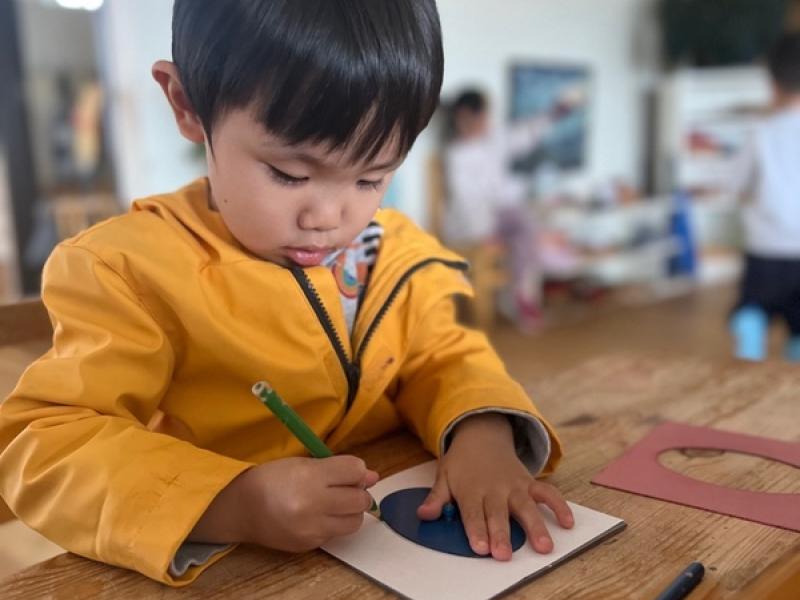Do you ever wonder why the Montessori method places such an emphasis on independence and responsibilities?
In “The Gift of Failure,” Jessica Lahey discusses how household duties translate into resilient adults. Assigning your child chores can evolve into taking accountability and forming a relationship with themselves where they feel self-sufficient. You can, and we encourage, enlisting your child to be an active member of your house who contributes just like the adults do. Everyone who shares the space is expected to participate in the duties required to run a house. This is how we approach tasks in the classroom. Modeling is essential; if your child sees grocery shopping, cooking, laundry, and gardening, they are more likely to engage.
Below are some primary age-appropriate tasks your child can be responsible for:
They can...
- Dress themselves
- Place dirty clothes in a hamper and hang things on hangers with size-appropriate racks.
- Fold (in the class, we have a shelf of rags that the children help fold and are accessible when there is a spill)
- Place their clean clothes in accessible drawers.
- Clean up their toys (make sure they are set up for success, and there are not too many toys out)
- Place dishes in / empty dishwasher (they do this at school daily)
- Feed pets
- Water plants
- Make their bed
- Sort items (think laundry or utensils from the dishwasher)
- Prepare their snack
- Replace paper towels/ toilet paper/ Kleenex in the house
- Weed the garden
- Sweep the floor
- Help plan grocery list/ shop for meals
Remember that your child is not expected to execute this task at an adult level! The children are constantly bombarded with corrections. This leads them to question themselves and become anxious and resentful. The purpose of including your child is to instill a sense of accomplishment, and the process, not the product, should be the emphasis.
The next chapter in The Gift of Failure by Jessica Lahey discusses the connection between praise and self-esteem. We are taught this in our Montessori training, and you may have noticed a general lack of praise in our environments. This is, of course, not because we do not value the child! It is; instead, we see that children can quickly learn to perform for praise versus honoring their inner voice.
All that being said, all praise is not equal, and there are ways to phrase approval that can be beneficial. For example, “you’re so smart” versus “you worked hard on that puzzle.” First, place a label on the child, and the child can begin to identify themselves as such and will actively avoid anything that may risk earning that label. The second reinforces behavior (in this case, say resilience) that sets them up for success in the long run.
Children look to adults to help them understand their place in the world. If we praise inherent qualities, like being “pretty,” versus a characteristic they develop (like being patient), they absorb the message that the label is their identity. As with anything, the expectation is not that all parents/teachers will be perfect with their language. Praise is ingrained in all of us; however, being intentional about what you say to your child can be helpful. Your modeling is most important!
Below are some examples of how to reinforce your child without labeling them:
- You worked hard on that.
- I heard you say how you feel; I appreciate it.
- I am proud of how hard you worked.
- You solved your problem!
- Great teamwork!
- I can see your practice has paid off.
- Good remembering.
- I know that was hard; you stayed so calm.
- You expressed yourself so well.
- I know this is hard; keep going!
- Your brain worked hard to figure that out.
- I appreciate you.
I am happy to discuss more ways to speak to your child without setting them up to connect their self-worth to your praise!
-Firefly Teacher
The child in our Montessori Transitional Kindergarten program is drawing circles to benefit fine motor skills development. This activity encourages creativity, builds hand-eye coordination, helps with focus and attention to detail, and can be a fun way to practice basic geometric concepts, all while promoting a sense of accomplishment as they master the circular shape.


